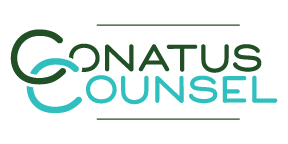In a previous article, I discussed steps outdoor recreation and adventure companies and outfitters should be aware of and take to properly have in place defenses to poential negligence injury liability and claims. Here, I discuss the importance of being aware and following applicable industry standards in outdoor recreation and adventure activities and business in order to further insulate one’s recreational business and personal assets from potential lawsuits and claims. In tort law, a duty of care is a legal obligation which is imposed on an individual requiring adherence to a standard of reasonable care while performing any acts that could foreseeably harm others. The breach of such a duty is the first element a plaintiff must establish to proceed with an action in negligence. The claimant must be able to show they were owed a duty of care from the defendant and the defendant then breached that duty. The breach of a duty could subject the defendant, whether an individual or business, to liability and damages.
In negligence cases, the standard of care refers to the amount of precaution, prudence, and diligence taken by the individual who has duty to the plaintiff. The general public is held to the reasonable person standard, while professionals in an industry are generally held to that industry’s standard(s) of care. The requirements of the standard are closely dependent on circumstances and/or industry standards involved. If the particular industry does not have established normalized standards, then the reasonable person test may still be implemented, along with the standards the business and/or activity set out to its patrons. Therefore, while it is important to be aware and make best efforts to follow industry standards of care, it is even more important to follow one’s own publicized standards and steps.
Whether the standard of care has been breached is determined by the jury, and is usually phrased in terms of the reasonable person. However, in certain industries and professions, the standard of care is determined by the standard that would be exercised by the reasonably prudent manufacturer of a product, or the reasonably prudent professional in that line of work. A special standard of care also applies to children, who, in a majority of jurisdictions, are held to the behavior that is reasonable for a child of similar age, experience, and intelligence under like circumstances.
Failing to meet industry or self-scripted standards could be interpreted as a failed duty by the defendant to plaintiff. Violation of standards may also be viewed by the courts as gross negligence and thereby disallow the defendant from relying upon a signed waiver of liability to simply dismiss plaintiff’s matter. While not all parties involved in outdoor recreation may follow the exact industry standards, they certainly should work to do so.
In many activities, such as zip lines, the standards are not yet or just being established. In these industries, it is important for them to be aware of standards, and updates, and to attempt to follow them as closely as possible. It is extremely important that outdoor recreation, adventure, and outfitter companies follow whatever standards and systems they themselves establish and spout in their own materials and documents. Failure to follow one’s own standards creates liability relatively simply when a situation arises. While making sure one’s business meets the industry standards may increase operating costs, it will also further ensure that customers and clients have a safe and enjoyable time, while decreasing one’s liability.
Forrest P. Merithew engages in and works with outdoor recreation and adventure activities, companies, and outfitters. Subsequent blog articles will outline the basic current standards for their respective industries and activities. Forrest’s work in business development, liability analysis, and regulatory law and consulting attempts to decrease future liability by assisting business and companies in meeting and following their industry standards. Forrest’s background in complex civil and commercial litigation, primarily on the defense side, allows him a higher understanding of how liability and negligence are dealt with in litigation and the ability to develop a comprehensive defense where needed. If you have any questions or just wish to talk with Forrest about business development, liability analysis and waiver applications, or any other business or legal questions regarding a certain activity or industry, please feel free to contact him.


